A Word (Or Two) from GC: Feb 2020
Wow. 2020. Month two.
I hope everyone got a break over the holiday that delivered what you were looking for - rest/relaxation, recreation, camaraderie, discovery, what else? I had a great all-of-the-above break with my family which included getting some reading done outside of the usual City reports and agendas. Reading is extremely important to me but it’s something that’s fallen off in my life in conjunction with the ~1500 page/week duties associated with being a Councillor. So I’m gratified that I not only got to read three books but also that I’m still buzzing about them - partially because they were so compelling, and partially because they dovetail perfectly with a huge Great Neighbourhoods project your Team Ward 9 will be working on over the next two years.
Sapiens offered a compelling analysis of how we find ourselves here, two decades into the 21 Century. Harari’s core contention is that, 200,000 years into our time on this planet, we share a truly global and increasingly globalizing culture; this cultural situation has been shaped by a compounding series of revolutions that lie at the root of what sets us apart from every other animal on the planet; and, the first and most profound of these revolutions was the cognitive revolution which, for reasons unknown, 70,000-30,000 years ago, supercharged the human mind with the ability to think and communicate about things abstractly, in the form of the stories that we share. Civilization is made possible by, and is ultimately the product of the stories we collectively believe - and today there is an increasing tension between the big global stories that have increasingly bound us together in larger numbers than ever before, and the local stories that set us apart and enrich who and what we are.
One of the important - and contested - stories of our modern world, and of Canadian society specifically, is democracy. David Meslin’s Teardown has a ton to say about the beleaguered state of Canadian democracy and how to fix it. Excitingly, a lot of his prescriptions are right in the wheelhouse of what Great Neighbourhoods is all about - namely the importance of the neighbourhood as the most local and vital unit of democratic political organization.
I was super-excited that a democracy advocate like David Meslin found his journey was taking him to the conclusion of the neighbourhood as an essential unit of democratic organization. I was also super-excited that an urbanist like Emily Talen, in Neighborhood, through her study of the physical entity of the neighbourhood over time, had arrived at the same conclusion. Great Neighbourhoods are more than just a ‘place’, they are, ideally, a vehicle for the democratic organization and achievement of best-possible outcomes for those who live in them.
This commonplace conclusion regarding the importance of relationships between people and place, at the scale of the neighbourhood, is exactly what our Great Neighbourhoods’ mission has been offering Ward 9 voters: that Great Neighbourhoods make a great city.
As a first step, we need to focus on the place that is a Great Neighbourhood. As a second step, we need to focus on how we unleash the power of such Great Neighbourhoods as profound units of democracy. As a third step, we need to reorganize our relationship between the City government and local leaders to create a direct and integrated service delivery model to support our Great Neighbourhoods.
Right before Council adjourned in December, I received the Christmas present of Council’s support for a Council Innovation Fund Project to explore Step Two - the organization of Great Neighbourhoods - and what that might look like in and with the communities of Greater Forest Lawn. The approval of this pilot project culminates several years of building support on Council to build the next generation of community representation, two years of wrangling about what this ideal future might entail with the Community Representation Framework Taskforce, and one year of working with community associations, schools, businesses, faith communities, service-providing organizations, and various other local leaders in Greater Forest Lawn to see if we were ready to be the guinea pig and figure it out.
It’s a major project for Team Ward 9 and we’re excited to work with Greater Forest Lawn over the next two years. We hope to scale our work at the multi-community level so that the City can scale its ability to replicate and integrate our outcomes moving forward. Our goal includes producing a model that not only works for Greater Forest Lawn, but also for the rest of our city. Our mandate includes being as inclusive and empowering as possible.
Thus far, we’ve been working with our Administration and community members to prepare for a Smart Start in March 2020. If you’re looking to become involved, please contact our office! It’s time.
We’re ready to build our best future together.

